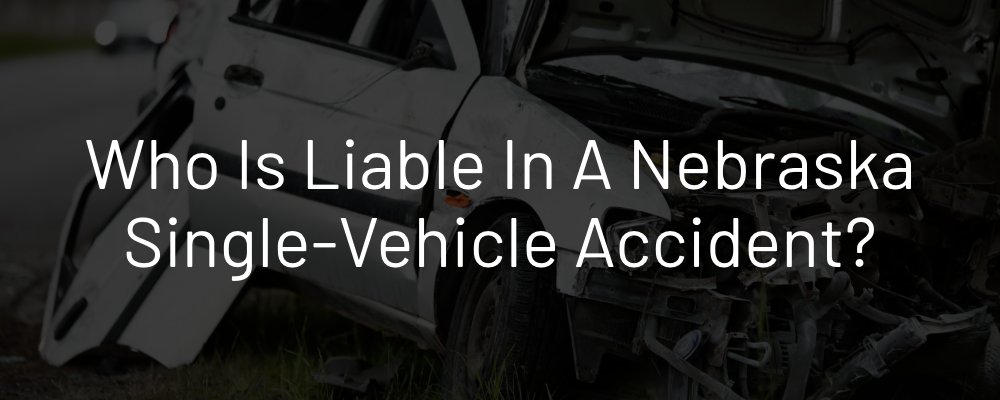When you picture a car accident, you may imagine at least two vehicles colliding with each other. However, many car accidents in Nebraska involve only one vehicle. While you may assume that you are at fault for a single-vehicle accident, this is not always the case. There are circumstances where other parties may be at fault, including government liability for an unsafe roadway or a passenger. Consult with an Omaha car accident lawyer to discuss your legal options before accepting fault.

Nebraska’s Fault-Based Car Insurance System
Nebraska operates on a fault-based car insurance system. Under this rule, the driver who caused the car accident is responsible for paying for the injuries and property damage that result. In the 12 no-fault states in the country, on the other hand, all drivers seek coverage from their own insurance companies, regardless of fault. Since single-vehicle accidents only involve one driver, determining fault is often straightforward. There are cases, however, where the driver is not to blame.
Factors Considered When Determining Liability for a Single-Vehicle Accident
Before resolving the claim, the driver’s car insurance company may send investigators to the scene of the accident, review any police report filed and take other steps to determine what caused the single-vehicle crash. Some factors that could affect liability in this type of claim include:
- Road conditions – if the road contained a dangerous defect, such as a pothole, uneven shoulder, debris, missing guardrail or malfunctioning traffic light, the driver may not be liable for a crash. Instead, the government agency responsible for maintaining the public road could be held responsible.
- Road work or construction – if the road was under construction at the time of the accident, the construction company could be held liable for failing to ensure the safety of the public. The company may have been negligent in creating a safe detour for drivers, posting proper warning signs or keeping equipment away from the road.
- Vehicle defects – if the car the victim was driving malfunctioned due to a defect and caused the single-vehicle accident, the manufacturer of the vehicle or auto part could be at fault. The victim may be able to file a product liability claim against the manufacturing company for the defective and dangerous vehicle.
- Passenger negligence – although rare, some single-vehicle accidents are found to be the fault of a passenger in the vehicle. If a passenger grabbed the wheel or directly contributed to the crash in another way, he or she could be responsible instead of the driver.
If one or more of these factors contributed to the single-vehicle crash, the driver of the car may not be given all – or any – of the blame. In Nebraska, a comparative negligence rule protects accident victims by allowing them to recover compensation even if they share fault for a crash. As long as a victim is found to be less than 50 percent at fault, he or she can still recover compensation for damages suffered from another party.
What to Do After a Single-Vehicle Accident in Nebraska
After a single-vehicle accident, do your best to remain calm. Check yourself and your passengers for injuries. Exit your vehicle when it is safe to do so and report the crash to the police by calling 911. Do not admit fault for the accident to the police. Take pictures of your damaged vehicle and the scene of the accident. Write down your police report number before you leave, then go to a hospital for immediate medical care. Before you accept fault for the crash from your car insurance company, consult with a lawyer about the possibility of holding someone else accountable. If you get injured in a single-vehicle accident, do not assume you have no legal options. Contact an attorney for a free case consultation about your rights.
